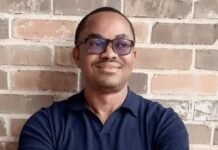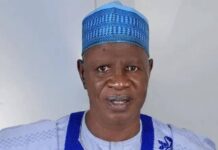From Uromi to Mangu: A nation bleeding — Who’s safe, where’s next? By Usman Yusuf Dole
For the most part, conflict remains one of the greatest threats to Nigeria’s economic progress. In the last decades, persistent insecurity from insurgencies in the North-East, later North West, South South to various violent attacks in communities like Uromi and Mangu has left the country in a constant state of unrest.
These episodes of bloodshed not only shatter lives and communities but also drives away local and foreign investors. No serious investor would commit resources in a place where safety and stability are not guaranteed. thus, insecurity stifles innovation, slows production, and drives up the cost of doing business.
The growing phobia “who’s next” fear is another layer of danger that cuts through Nigeria’s fragile social fabric. Citizens live in anxiety, wondering which town or village will suffer the next attack without second thought. This widespread fear erodes national unity and creates mutual suspicion among ethnic and religious groups. It also affects productivity, as people withdraw from economic activities, markets, farms, and schools. When fear becomes a daily reality growth becomes a distant dream.
Unfortunately, the government’s response to these acts of terror and violence has too often been limited to press statements and condolence messages rather than decisive measures. The killings in Mangu and Uromi, like many others before them, are often followed by promises of investigations and security reinforcements that rarely materialize into meaningful action.
This lack of political will and decisive leadership has allowed impunity to thrive and encouraged criminal actors to strike again without fear of consequence.
READ ALSO: The Unspeakable Reality of Nigeria, by Usman Yusuf Dole
Peace is not merely the absence of gunfire; it is the presence of justice, equity, and functioning institutions. When these structures are weak or absent, conflict festers, and the economy pays the price. Roads become unsafe, agriculture declines, tourism dies, and industries relocate or shut down entirely. Every act of violence pushes Nigeria’s development farther from reach, keeping millions trapped in poverty and instability.
Countries that enjoy sustained peace are typically those that grow rapidly in GDP, human capital, and infrastructure. Nigeria has the potential to be among them, but not without confronting the hard truth: peace and economic development are inseparable. Until peace becomes a national priority not just a campaign promise the cycle of bloodshed from places like Uromi to Mangu will continue, and the question on everyone’s lips will remain: who’s safe, where’s next?
Follow the Neptune Prime channel on WhatsApp:
Do you have breaking news, interview request, opinion, suggestion, or want your event covered? Email us at neptuneprime2233@gmail.com





